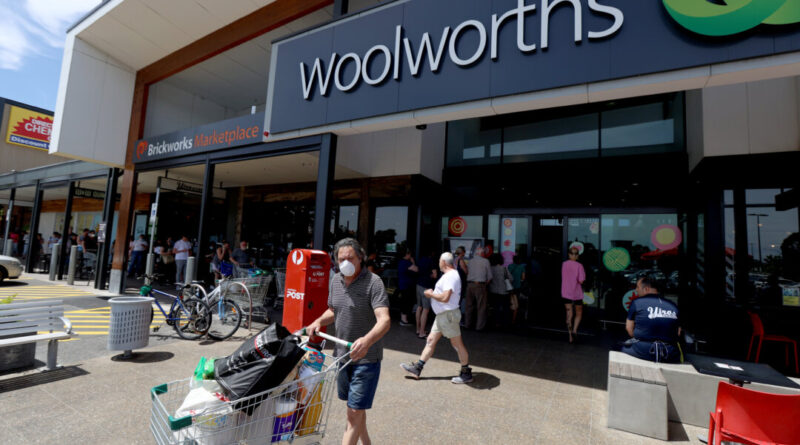CEO of Woolworths Refutes Allegations of Land Hoarding
Woolworths CEO Brad Banducci emphasized that the company never acquired any site without a clear plan for development in place. This strategic approach ensured a favorable return on investment, as stated by the CEO. Banducci’s remarks came in response to allegations of unfair competition practices aimed at eliminating rivals.
Food wholesaler Metcash CEO Grant Ramage accused Woolworths and Coles of attempting to buy out independent stores and supermarkets to drive them out of business. Ramage claimed that the supermarket giants were willing to pay exorbitant prices for properties, with no immediate benefit in sight. This alleged scheme was believed to be a tactic to eliminate competition in certain areas.
During a Senate hearing, Banducci clarified that Woolworths did not engage in “land banking,” which involves acquiring land without any intention of development. Instead, the company invested in property developments with a focus on factors like population growth, supply chain infrastructure, and strategic distribution center locations.
Banducci highlighted Woolworths’ commitment to responsible development, noting that all acquired land had a clear purpose for future development. This proactive approach ensured a worthwhile return on investment for the company.
The ongoing investigation into Woolworths and Coles, in relation to alleged price-gouging during the cost of living crisis, was also mentioned during the proceedings.
Woolworths CEO Addresses Competition in Grocery Sector
Banducci addressed misconceptions about Woolworths’ market dominance in the grocery sector, emphasizing the competitive landscape of the industry. He explained that while Woolworths is a prominent supermarket chain, the grocery business encompasses a broader range of competitors.
Statista data from the 2023 financial year indicated that Woolworths held a 37% market share in the supermarket industry. Banducci noted that Australian consumers were discerning shoppers who patronized various brands beyond supermarkets, such as Reject Shop, Kmart, and Big W.
Banducci acknowledged the growth of competitors like Aldi, Amazon, and Chemist Warehouse in recent years, highlighting their impact on the sector. He cited Aldi’s expansion to almost 600 stores since entering the Australian market in 2001, along with the substantial revenue generated by Amazon and Chemist Warehouse.
Comparing Australia’s grocery sector concentration to other jurisdictions, Banducci pointed out that many regions with larger populations exhibited higher market concentration than Australia.
Challenges Faced During Inquiry
Banducci’s statements came amidst a tense exchange with the Senate committee during an inquiry session. At one point, Banducci faced pressure to disclose information on the company’s return on equity, a key financial metric. His initial reluctance to provide a direct answer led to a warning of potential contempt charges from the Committee chair.
Ultimately, Banducci conceded and admitted to lacking the necessary data, requesting additional time to address the committee’s inquiry. The session highlighted the scrutiny faced by Woolworths and its CEO in navigating complex competitive dynamics and regulatory challenges.



